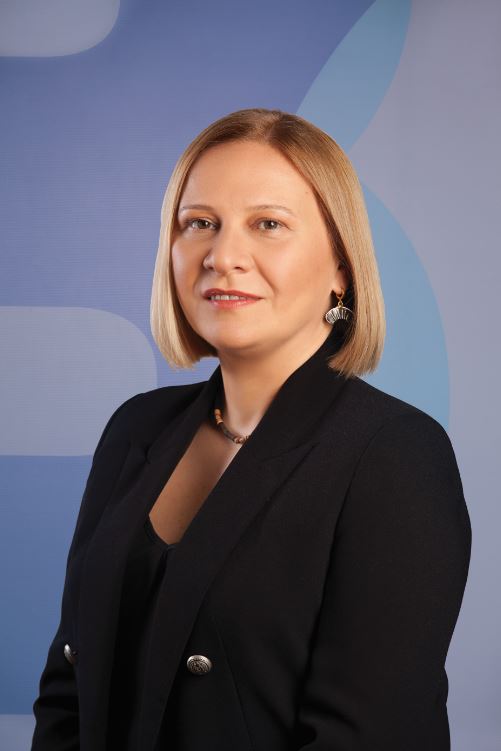EBRD remains a committed partner for Georgia’s sustainable future
The EBRD’s main objective in all our countries of operations is to foster the transition towards an open market economy, including to promote private and entrepreneurial initiatives committed to democracy and market economics.
In Georgia the priority is to make the economy more competitive, well governed, green, integrated, inclusive, and resilient – the essence of the sustainability and our impact.
EBRD does this with an overriding focus on the private sector with investments, advise, technical assistance and policy dialogue. We combine the private sector focus with extensive work on policy reforms to help improve the investment climate and governance. That was the main purpose for the establishment of the Investors Council – a platform for dialogue between public and private sectors – one of our flagship initiatives which we manage jointly with the UK Good Governance Fund. It has been operating since 2015 and the main objective is to improve the business climate in Georgia, creating the right policy environment for foreign and domestic investors.
Foreign financing is important as it does not only bring capital, but also the knowledge and know-how from successful companies abroad. These benefits often spill over from those companies to the wider economy, enhancing the overall productivity in the country as well as facilitating further integration with foreign markets.

So far, Georgia has benefitted considerably from inflows of foreign financing. However, even Georgia cannot avoid the declining global trend and diminishing appetite of investors.
In Georgia, since the start of operations in 1994, we have cumulatively invested more than EUR 5 billion in up to 290 projects. This is an incredible volume of investments given the size of the country and the GDP. EBRD is very committed to supporting Georgia with more investments, business advise and policy engagements.
Georgia has a solid business community with strong zest for development, increased standards, and resilience. We have remarkable achievements supporting the private sector competitiveness especially among the small and medium size enterprises. Jointly with our partner donors, namely the European Union, we have been actively supporting local private sector to enhance production and their environmental practices. The goal is for private firms to upgrade their products and services in line with EU standards to offer high-quality products on the local market and benefit from trade opportunities abroad. Majority of the investments are in accordance with the EBRD Green Economy Transition approach.
We also continuously help the local banking sector to grow and become resilient. One of the prerequisites of achieving sustainable, long-term growth is fostering local financial and capital markets. We are actively involved in enhancing local capital markets by facilitating issuance of bonds, especially in local currency and investing in the bonds, as well as creating an innovative capital market instrument. The capital market development diversifies access to finance for the private sector, strengthens the local currency and helping to avoid imposing foreign exchange risks on clients that cannot bear them, especially the small and medium size companies. We have also been actively investing in green bonds, such as Georgian Railways green bond project, where the proceeds are exclusively used to finance or refinance eligible green projects. Green bonds, for many issuers is a chance to improve their climate governance.
EBRD invests heavily in renewable energy projects which are enhancing Georgia’s energy security and environment. We have supported the promotion of financing for green energy, green cities framework, renewable energy, energy efficiency in cooperation with the Government and municipalities and the donors.
In addition, we continue to support rehabilitation of municipal infrastructure across the country. Rehabilitation of the infrastructure has been one of our biggest priorities for the past three decades in Georgia.
Human capital is the most valuable resource of any nation. Economies are made up of people – their skills, ideas, labour and productive potential; hence successful economy cannot be achieved without consistent enhancement of these skills.
In Georgia, we focus on improved access to employment, skills development, and entrepreneurship for women. We effectively engaged with our clients in addressing some of the key challenges they face in terms of skills shortage and work, to create ways into viable economic opportunities for young people across the country. EBRD makes additional efforts to enhance economic inclusion, through financial support and expert advice. Working with the clients, EBRD designs more effective work-based learning models to provide more realistic and relevant skills for companies.
Last but not least, our flagship Advice for Small Business teams has been operating successfully for several decades helping to enhance skills and capacity amongst the private sector. I think that the majority of the private sector players in Georgia have already come across this team of experts, working with entrepreneurs to boost the know-how of entrepreneurs seeking to grow their businesses. They also work specifically with women-led SMEs providing them know-how to transform the businesses, covering a wide range of topics, including – building websites, introducing quality management systems that meets ISO standards, improving human resource management, creating marketing strategies or business expansion strategies, etc. The team also conducts several workshops on leadership, digitalisation, financial management, ICT solutions, as well as on how to expand businesses.
For the past years, EBRD has been successfully supporting Georgia in transforming into a strong market economy. In the end, I would like to highlight that only through successfully establishing synergies with the private sector, the Government, and international donors, we are able to be successful in addressing some of the key challenges of today.




 Search
Search





